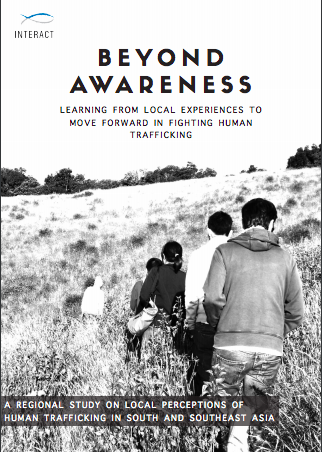This report presents findings from a multiple case study of how human trafficking is perceived and experienced in seven local communities in five countries in South and South-East Asia. The aim of the report is to explore and understand local experiences and perceptions on how human trafficking takes place in South and South-East Asia, and to analyze how these local experiences and perceptions can add value in designing better strategies to fight human trafficking. The report addresses the following specific research questions:
- How is human trafficking experienced and perceived by local communities in Asia?
- What are the local perspectives on the mechanisms leading to human trafficking or involuntary migration in these communities?
- What are the major risks that children and teenagers are exposed to when it comes to trafficking, and how does it differ from adults?
- Which strategies are used by local communities to prevent trafficking? What kind of protective factors or mechanisms are in place?
- What are the local perspectives on how human trafficking could be reduced?
The findings reveal that a rather high proportion of the respondents have experiences and knowledge about actual cases of human trafficking, where people they knew or knew about were the victims. Consequently, many people do have first-hand knowledge about the issue of human trafficking. This points to the importance of learning from local perceptions and experiences in order to more effectively prevent human trafficking. Further, the analysis demonstrates that perceptions of what human trafficking means, and how it takes place, are remarkably similar across all the studied locations. In sum, human trafficking is most often described as a process where people are deceived to go somewhere to work, but end up in situations of exploitation that do not correspond to the jobs they were promised.
Further, the results show that traffickers are generally represented as people close to the victims, sharing a similar background or social position. Interview narratives about human trafficking also demonstrate that respondents have a broad and multifaceted understanding of the issue, encompassing a diversity of forms and purposes of trafficking including trafficking for forced labour; sexual exploitation; forced begging; and harvesting of organs. Notably, women are not generally described as more vulnerable than men, although women are seen as more at risk of sexual exploitation while men are seen as more vulnerable to forced labour.

